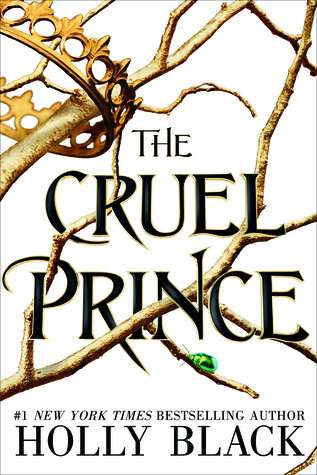 Holly Black is one of those authors that I like often enough that I will always read her books if I can find them in the library, so picking up The Cruel Prince was a no-brainer. It’s not my favorite of her books, but I liked it and I’m sure I’ll read the rest of the series whenever it comes out, though I’m admittedly not waiting with baited breath.
Holly Black is one of those authors that I like often enough that I will always read her books if I can find them in the library, so picking up The Cruel Prince was a no-brainer. It’s not my favorite of her books, but I liked it and I’m sure I’ll read the rest of the series whenever it comes out, though I’m admittedly not waiting with baited breath.
What’s it about?
The Cruel Prince follows Jude, a human girl who was taken—along with her twin Tamlyn and older half-sister Vivi—to live as the daughter of the redcap Madoc. Madoc is Vivi’s birth father: the girls’ mother fled from him and remarried; the three girls lived in the human world for a few years before Madoc found them, slaughtered their parents, and took them back to the faerie realm. Jude has aspirations to be a faerie knight and has an antagonistic relationship with Cardan, the youngest son of the High King and the titular character. As the story develops, Jude becomes more and more involved in the political side of the faerie world: the High King is getting ready to step down and two of his sons, Balekin and Dain, are waging a silent war to determine which of them will take up the crown.
What’d I think?
For the most part, I really liked the book. I pretty much always love faeries, and as usual Black does a great job with them. The faeries here are even better at deceptive truths than they are in her other novels, and that’s saying something. I loved the dynamic between Jude and her family. Her weird but mostly affectionate relationship with Madoc—who loves her as though he were her real father but who literally murdered her real parents in front of her—is a highlight because it is so messed up but somehow doesn’t feel forced or unnatural. Oriana, Madoc’s second wife, is also a really cool character. At first I thought she was kind of one-dimensional, but by the end I really liked her. I wasn’t quite as invested in either of Jude’s sisters as individuals—though I preferred Vivi to Tamlyn—but they did add to the family dynamic as a whole. I’m expecting to like them more in subsequent books, though, since they’re both poised to take larger roles going forward.
The book is also pretty dark. Holly Black’s faerie tales are always kind of dark, but this one is really dark. There were several times where I was actually scared. The bad guys in this one are really, really bad and the scariest part is that at times it is kind of hard to tell who the bad guys are. And then there are the times when it is terrifyingly obvious.
Is there anything I didn’t like?
Yeah, but they’re pretty minor. I did not like the romance in the novel. There’s no way to talk about the specifics without diving into spoiler territory, but Jude (and Tamlyn’s) romances are either icky or pointless or both. The fact that there is legitimately no point for Jude to be worrying about romance during this period of her life makes it even worse.
The book also starts pretty slowly. I had a hard time getting into it. Once I was in, I was all in, but it took longer than it should’ve.
Let’s talk about the Easter eggs!
I thought the revelation that The Cruel Prince takes place in the same wider universe as The Darkest Part of the Forest and Tithe: A Modern Faerie Tale was pretty cool. I loved seeing Severin, Ben, and Hazel again. Their inclusion is one of the main reasons that I’ll read the sequels (though there’s a part of me that wants to keep them away from the bloodshed that’s sure to come; they got their happy ending, dang it, and I don’t want it taken from them). I wasn’t nearly as excited to check in with Kaye and Roiben, but I’m sure that some readers were, so I’m not going to complain about it. I don’t think you’d have to read The Darkest Part of the Forest or Tithe to understand The Cruel Prince, but I get the impression that it might be a good idea for the rest of the series. Obviously I can’t know for sure, but it seemed to me that at the very least Roiben is going to have more than just a cameo in the next book.
What’s the verdict?
If you like dark faerie tales, The Cruel Prince is going to be right up your alley. It’s an exciting read with some really interesting, messy relationships and very morally grey situations and characters. The only real weak point in the book is the romance, but since it is not a major element it’s not enough to keep me from recommending it.
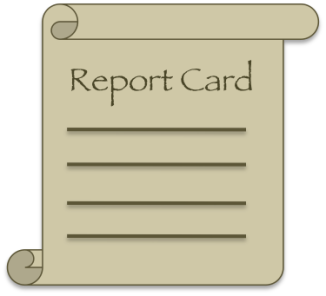 Report card.
Report card.
Writing: A Plot: A Themes: B Fun: B+
Characters: B (Mostly docked for Cardan; the majority of the characters are excellent, but there’s nothing about Cardan that intrigued me, and he’s the title character, so…)
Final: B



 “Take my hand
“Take my hand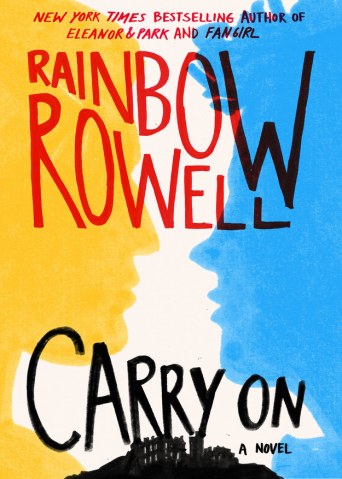 I reread Rainbow Rowell’s
I reread Rainbow Rowell’s  Well, that’s a tough one. Personally, I say yes. Carry On is kind of a strange concept. In my opinion it totally works (as a meta experiment) to skip the first few books, but at the same time it’s weird to jump right into the end of a story without any context. Fangirl gives enough of that context for the reader to know what kind of story it is, some details about the characters, the world, and what kind of story arcs to expect. It engages in the fandom experience of reading the Simon Snow series. Having read Fangirl made Carry On feel like jumping back into a series after a long time; you may not have read things recently enough to know the details, but you’ve got the gist. Instead of making predictions for yourself, you can have Cath’s predictions in the back of your head. Reading Fangirl also helps to simply let you know: no, you’re not missing anything. There’s not actually a whole Simon Snow series.
Well, that’s a tough one. Personally, I say yes. Carry On is kind of a strange concept. In my opinion it totally works (as a meta experiment) to skip the first few books, but at the same time it’s weird to jump right into the end of a story without any context. Fangirl gives enough of that context for the reader to know what kind of story it is, some details about the characters, the world, and what kind of story arcs to expect. It engages in the fandom experience of reading the Simon Snow series. Having read Fangirl made Carry On feel like jumping back into a series after a long time; you may not have read things recently enough to know the details, but you’ve got the gist. Instead of making predictions for yourself, you can have Cath’s predictions in the back of your head. Reading Fangirl also helps to simply let you know: no, you’re not missing anything. There’s not actually a whole Simon Snow series.
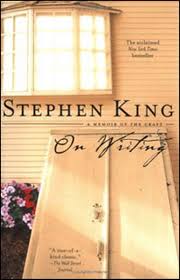 This quote comes from Stephen King’s memoir On Writing (which, full disclosure, is the only Stephen King book I’ve read because I’m too scared for horror). I love it because it combines two of my favorite things: books and magic. It was also my high school senior quote, so it has a special place in my heart.
This quote comes from Stephen King’s memoir On Writing (which, full disclosure, is the only Stephen King book I’ve read because I’m too scared for horror). I love it because it combines two of my favorite things: books and magic. It was also my high school senior quote, so it has a special place in my heart. I actually wrote a mini review for Wonder by R.J. Palacio last year because it was one of my
I actually wrote a mini review for Wonder by R.J. Palacio last year because it was one of my 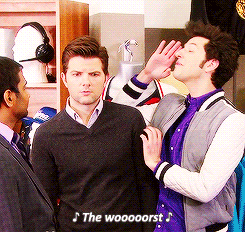
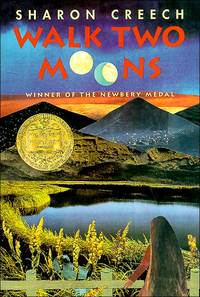 “It seems to me that we can’t explain all the truly awful things in the world like war and murder and brain tumors, and we can’t fix these things, so we look at the frightening things that are closer to us and we magnify them until they burst open. Inside is something that we can manage, something that isn’t as awful as it had first seemed. It is a relief to discover that although there might be axe murders and kidnappers in the world, most people seem a lot like us: sometimes afraid and sometimes brave, sometimes cruel and sometimes kind.”
“It seems to me that we can’t explain all the truly awful things in the world like war and murder and brain tumors, and we can’t fix these things, so we look at the frightening things that are closer to us and we magnify them until they burst open. Inside is something that we can manage, something that isn’t as awful as it had first seemed. It is a relief to discover that although there might be axe murders and kidnappers in the world, most people seem a lot like us: sometimes afraid and sometimes brave, sometimes cruel and sometimes kind.” Unsurprisingly, the perennial classic Charlotte’s Web by E.B. White is a really good book for discussion. For the three people in the world who haven’t read this one… spoilers.
Unsurprisingly, the perennial classic Charlotte’s Web by E.B. White is a really good book for discussion. For the three people in the world who haven’t read this one… spoilers. Is Charlotte a good friend to Wilbur? Consider her dedication to saving his life, but don’t forget her occasional reluctance to attribute good qualities to Wilbur: when Wilbur protests that he’s not terrific, she replies that “That doesn’t make a particle of difference” (89)—although admittedly she corrects herself later to say “You’re terrific as far as I’m concerned […] and that’s what counts. You’re my best friend, and I think you’re sensational” (91); she later questions Templeton’s word choice by complaining that “I’m not sure Wilbur’s action is exactly radiant, but it’s interesting” (101). A
Is Charlotte a good friend to Wilbur? Consider her dedication to saving his life, but don’t forget her occasional reluctance to attribute good qualities to Wilbur: when Wilbur protests that he’s not terrific, she replies that “That doesn’t make a particle of difference” (89)—although admittedly she corrects herself later to say “You’re terrific as far as I’m concerned […] and that’s what counts. You’re my best friend, and I think you’re sensational” (91); she later questions Templeton’s word choice by complaining that “I’m not sure Wilbur’s action is exactly radiant, but it’s interesting” (101). A
 One driving force of the novel is change over time. Is change a good thing? Which characters change over the course of the seasons? Pay particular attention to Fern. How is she different at the end of the novel than she was at the beginning? Do you think Fern growing apart from Wilbur (and towards Henry) is healthy or sad? (Both? Neither?) Why do you think White chose to make Fern’s change in allegiance so dramatic that she left Wilbur’s medal ceremony to go ride the Ferris Wheel with Henry, leaving Avery to be the one to kiss and congratulate Wilbur? Consider “Fern did not come regularly to the barn any more. She was growing up, and was careful to avoid childish things, like sitting on a milk stool near a pigpen” (183). What does it mean that Fern is careful to avoid childish things? Is growing up, then, a choice? What does it mean to grow up or to be childish? At what age are childish things seen as inappropriate? Consider how young Fern is (eight) and her mother’s intense concern that she has not yet abandoned her childish pursuits. Consider Mr. Arable’s remark that “They’ve got to grow up some time” (133). What do you think about the fact that a boy/romance was the incentive for Fern to abandon her childish life?
One driving force of the novel is change over time. Is change a good thing? Which characters change over the course of the seasons? Pay particular attention to Fern. How is she different at the end of the novel than she was at the beginning? Do you think Fern growing apart from Wilbur (and towards Henry) is healthy or sad? (Both? Neither?) Why do you think White chose to make Fern’s change in allegiance so dramatic that she left Wilbur’s medal ceremony to go ride the Ferris Wheel with Henry, leaving Avery to be the one to kiss and congratulate Wilbur? Consider “Fern did not come regularly to the barn any more. She was growing up, and was careful to avoid childish things, like sitting on a milk stool near a pigpen” (183). What does it mean that Fern is careful to avoid childish things? Is growing up, then, a choice? What does it mean to grow up or to be childish? At what age are childish things seen as inappropriate? Consider how young Fern is (eight) and her mother’s intense concern that she has not yet abandoned her childish pursuits. Consider Mr. Arable’s remark that “They’ve got to grow up some time” (133). What do you think about the fact that a boy/romance was the incentive for Fern to abandon her childish life?
 What would you have written in your web about Wilbur? What did you think of Charlotte’s words? Which did you think was the best choice? The worst? Defend your choices. Discuss the words both in and out of the context of the novel. In the novel, for example, Templeton found the word ‘radiant’ and Charlotte made do. Outside the novel, E.B. White specifically chose the word ‘radiant.’ Why do you think that he selected the words that he did?
What would you have written in your web about Wilbur? What did you think of Charlotte’s words? Which did you think was the best choice? The worst? Defend your choices. Discuss the words both in and out of the context of the novel. In the novel, for example, Templeton found the word ‘radiant’ and Charlotte made do. Outside the novel, E.B. White specifically chose the word ‘radiant.’ Why do you think that he selected the words that he did?
 “
“ George can’t understand why Nathaniel cares what Rebecca thinks “after everything she did for you that you didn’t ask for?” Then he calls her a “stupid bitch.” “
George can’t understand why Nathaniel cares what Rebecca thinks “after everything she did for you that you didn’t ask for?” Then he calls her a “stupid bitch.” “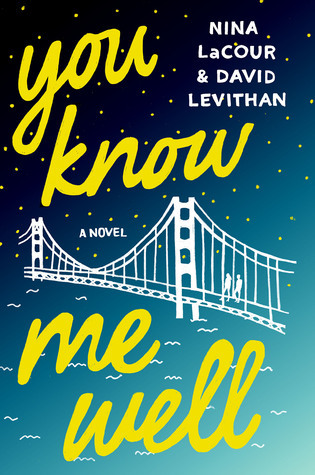 You Know Me Well by Nina LaCour and David Levithan was a really nice surprise. It was a random selection that ended up being a lot more fun than I expected. Weirdly—and this will probably sound snarky or, at best, like a backhanded compliment—the things I liked most about You Know Me Well aren’t what it does, but rather what it doesn’t do.
You Know Me Well by Nina LaCour and David Levithan was a really nice surprise. It was a random selection that ended up being a lot more fun than I expected. Weirdly—and this will probably sound snarky or, at best, like a backhanded compliment—the things I liked most about You Know Me Well aren’t what it does, but rather what it doesn’t do.
 Report card.
Report card.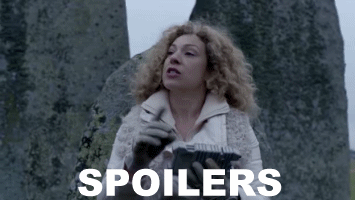
 You can find my standard review of Fangirl by Rainbow Rowell
You can find my standard review of Fangirl by Rainbow Rowell 
 Are you a fangirl/fanboy? What does that mean? What purpose does fandom serve (both in Fangirl and in real life), and who benefits from it? Consider Cath’s endorsement of the Internet: “‘There are other people on the Internet. It’s awesome. You get all the benefits of ‘other people’ without the body odor and the eye contact’” (147). Consider: “To really be a nerd, [Cath]’d decided, you had to prefer fictional worlds to the real one” (299). Do you agree with this definition? If not, what would you suggest to replace it?
Are you a fangirl/fanboy? What does that mean? What purpose does fandom serve (both in Fangirl and in real life), and who benefits from it? Consider Cath’s endorsement of the Internet: “‘There are other people on the Internet. It’s awesome. You get all the benefits of ‘other people’ without the body odor and the eye contact’” (147). Consider: “To really be a nerd, [Cath]’d decided, you had to prefer fictional worlds to the real one” (299). Do you agree with this definition? If not, what would you suggest to replace it? Discuss Cath’s issues in her fiction writing class. Why do you think she pushes so hard against creating her own worlds? Do you think she deserved all the second chances she got? Which writing do you think matters more: the fanfiction that is read all over the world, or the short story that forces Cath to make her own world?
Discuss Cath’s issues in her fiction writing class. Why do you think she pushes so hard against creating her own worlds? Do you think she deserved all the second chances she got? Which writing do you think matters more: the fanfiction that is read all over the world, or the short story that forces Cath to make her own world?
 Discuss the novel’s romance in general. Compare the various couples (and potential couples) that appear: Reagan/Levi, Cath/Levi, Wren/Jandro, Wren/Jesse, Cath/Abel, Cath/Nick, Simon/Baz, Simon/Agatha, Baz/Agatha, Arthur/Laura, etc. What does Fangirl have to say about romantic love? What does it mean to be in love? Consider Nick’s anti-love story, which reads like a bad fanfic (198) as well as Wren’s belief in happy ever after: “‘Happily ever after, or even just together ever after, is not cheesy,’ Wren said. ‘It’s the noblest, like, the most courageous thing two people can shoot for’” (387). What commentary does the novel make about love and the perception of love? Why does Cath prefer Simon/Baz to Simon/Agatha? Why does she hate Nick’s manic pixie dreamgirls so much? Is a romantic happily ever after the best ending for Cath? For everyone? Why or why not?
Discuss the novel’s romance in general. Compare the various couples (and potential couples) that appear: Reagan/Levi, Cath/Levi, Wren/Jandro, Wren/Jesse, Cath/Abel, Cath/Nick, Simon/Baz, Simon/Agatha, Baz/Agatha, Arthur/Laura, etc. What does Fangirl have to say about romantic love? What does it mean to be in love? Consider Nick’s anti-love story, which reads like a bad fanfic (198) as well as Wren’s belief in happy ever after: “‘Happily ever after, or even just together ever after, is not cheesy,’ Wren said. ‘It’s the noblest, like, the most courageous thing two people can shoot for’” (387). What commentary does the novel make about love and the perception of love? Why does Cath prefer Simon/Baz to Simon/Agatha? Why does she hate Nick’s manic pixie dreamgirls so much? Is a romantic happily ever after the best ending for Cath? For everyone? Why or why not? Discuss the plagiarism in the novel. Professor Piper calls Cath out for plagiarism, but Cath argues that there is a line between fanfic and plagiarism. Later, Nick tries to pass the anti-love story that Cath helped him write as entirely his own work. Is either case actually plagiarism? Which is worse? Consider that Gemma T. Leslie likes fanfiction and that Cath always includes a disclaimer on her work (124, 51). What are the cases for and against fanfiction? Do you think it was right of Cath to refuse to take credit on the story, therefore disqualifying the story from publication in the school literary journal?
Discuss the plagiarism in the novel. Professor Piper calls Cath out for plagiarism, but Cath argues that there is a line between fanfic and plagiarism. Later, Nick tries to pass the anti-love story that Cath helped him write as entirely his own work. Is either case actually plagiarism? Which is worse? Consider that Gemma T. Leslie likes fanfiction and that Cath always includes a disclaimer on her work (124, 51). What are the cases for and against fanfiction? Do you think it was right of Cath to refuse to take credit on the story, therefore disqualifying the story from publication in the school literary journal? Earlier, we read Stephen Chbosky’s
Earlier, we read Stephen Chbosky’s 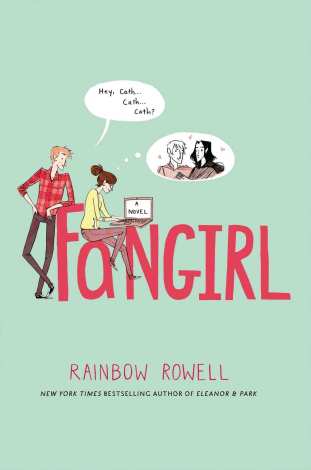 Fangirl
Fangirl 


 What’s the verdict?
What’s the verdict? I went into The Sun Also Rises by Ernest Hemingway knowing that I probably wouldn’t like it. I haven’t read a lot by Hemingway, but I have disliked what I’ve read. I tried to go into The Sun Also Rises with an open mind, but I did not care for it. I mean, obviously. Look how long it took for me to read it.
I went into The Sun Also Rises by Ernest Hemingway knowing that I probably wouldn’t like it. I haven’t read a lot by Hemingway, but I have disliked what I’ve read. I tried to go into The Sun Also Rises with an open mind, but I did not care for it. I mean, obviously. Look how long it took for me to read it.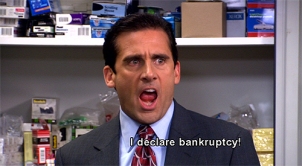
 Sooooo. The Sun Also Rises… not my thing. Maybe it just isn’t my thing. Maybe I’m missing something hugely significant that someone will explain to me in the comments and I’ll kick myself and be forced to rethink my life/reading. Maybe Hemingway isn’t as amazing as everyone says. The point is… I finished it, and now I can scratch it off my poster. Here’s hoping the next one is more enjoyable.
Sooooo. The Sun Also Rises… not my thing. Maybe it just isn’t my thing. Maybe I’m missing something hugely significant that someone will explain to me in the comments and I’ll kick myself and be forced to rethink my life/reading. Maybe Hemingway isn’t as amazing as everyone says. The point is… I finished it, and now I can scratch it off my poster. Here’s hoping the next one is more enjoyable.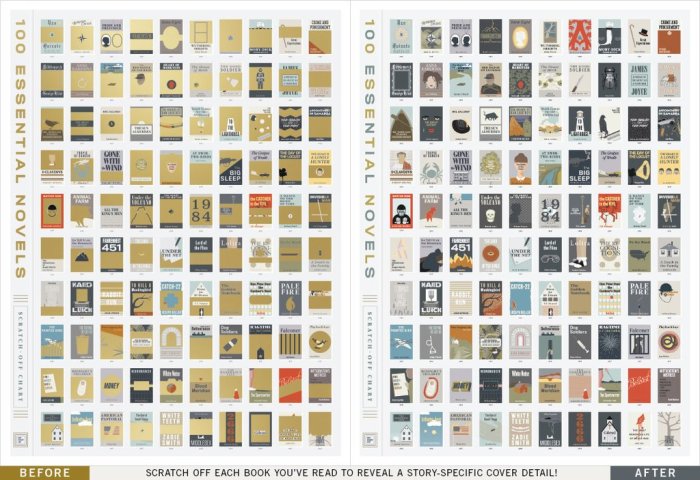
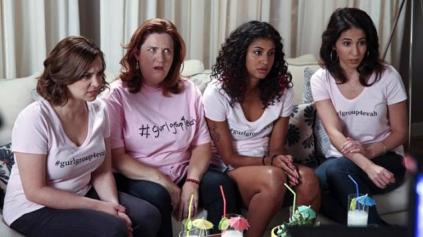 The episode starts with Rebecca telling the #gurlgroup4evah that she’s done with dating and that she’s prepared to be alone forever. She’s even started shopping for cats, so enthusiastically that she sings a song about it: “A Buttload of Cats.” In true Crazy Ex-Girlfriend form, the song is totally ridiculous while simultaneously questioning (and subverting) stereotypes:
The episode starts with Rebecca telling the #gurlgroup4evah that she’s done with dating and that she’s prepared to be alone forever. She’s even started shopping for cats, so enthusiastically that she sings a song about it: “A Buttload of Cats.” In true Crazy Ex-Girlfriend form, the song is totally ridiculous while simultaneously questioning (and subverting) stereotypes:

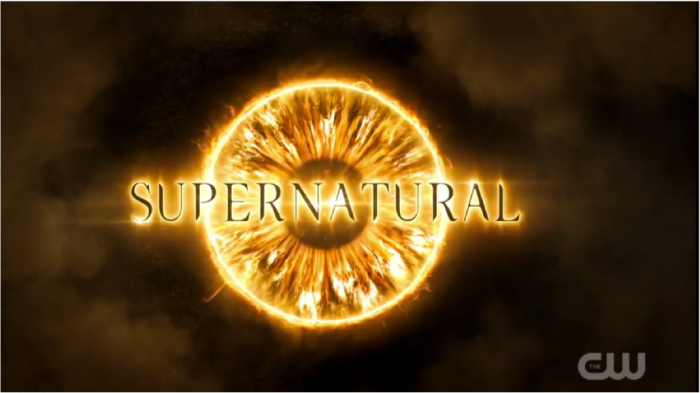


 Queens of Geek by Jen Wilde is another one that I heard about by reading other people’s book review blogs. So if you reviewed this positively, you may assume that I saw your review and read it by your recommendation. So… thanks. As I’ve said approximately eighteen thousand times, I love books about fans and fandom, so this one was immediately appealing to me.
Queens of Geek by Jen Wilde is another one that I heard about by reading other people’s book review blogs. So if you reviewed this positively, you may assume that I saw your review and read it by your recommendation. So… thanks. As I’ve said approximately eighteen thousand times, I love books about fans and fandom, so this one was immediately appealing to me. The only issue that arises from the diversity is a problem with society, not with the book. There are a few clunky paragraphs explaining things that really shouldn’t have to be explained. At one point Taylor confronts Reese for bisexual erasure. At another, she meets another character who helps her see that being on the Autism spectrum doesn’t make her bad or wrong. It just is. These passages, while important, do occasionally feel a little too much like a crash course in Being a Decent Human Being 101. It’s good that there’s fiction out there that addresses and explains these sorts of things, but at the same time… wtf, guys. It’s 2018. Why do we still need writers to tell us that it’s not okay to fatshame or to hurl anonymous abuse on the Internet?
The only issue that arises from the diversity is a problem with society, not with the book. There are a few clunky paragraphs explaining things that really shouldn’t have to be explained. At one point Taylor confronts Reese for bisexual erasure. At another, she meets another character who helps her see that being on the Autism spectrum doesn’t make her bad or wrong. It just is. These passages, while important, do occasionally feel a little too much like a crash course in Being a Decent Human Being 101. It’s good that there’s fiction out there that addresses and explains these sorts of things, but at the same time… wtf, guys. It’s 2018. Why do we still need writers to tell us that it’s not okay to fatshame or to hurl anonymous abuse on the Internet?
